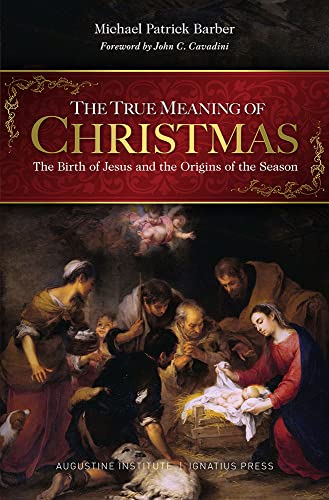I wanted to let others know about this book I read last year by Theologian Michael Patrick Barber titled “The True Meaning of Christmas: The Birth of Jesus and the Origins of the Season.”
What does the Bible really say about the birth of Jesus? How did the celebration of Christmas become associated with things like Santa Claus and decorated trees? In The True Meaning of Christmas: The Birth of Jesus and the Origins of the Season, biblical scholar Michael Patrick Barber offers an inspiring look at the Bible’s accounts of Jesus’ birth and the development of the Christmas season. Along the way, he answers numerous questions, including:
How is the Christmas story related to ancient Jewish expectations? Why is Jesus said to be laid in a “manger”? Who are the Magi? What is the mysterious Christmas star? How did December 25th become the date of Christmas? How did Saint Nicholas become “Santa Claus”?
As Dr. Barber will show, to find our way “home” at Christmas, we need to first return to Christmas’s home in the story of the Bible. Only by carefully reflecting on the stories of Jesus’ birth can we hope to celebrate Christmas in the way it is meant to be celebrated and discover the real joy it promises!
Provided below are links to either know more about this book or to get your own copy.
Dr. Michael Barber interview with Michael Lofton on the “True Meaning of Christmas” (YouTube)
Audio from Catholic Answers Live where he is interviewed about this book
A series of 20 five-minute episodes on Formed.org
(Many parishes offer a free subscription to Formed)
Ignatius Press Paperback
Ignatius Press Hardback
Amazon Kindle Edition
Amazon Paperback
Audiobook on Audible




